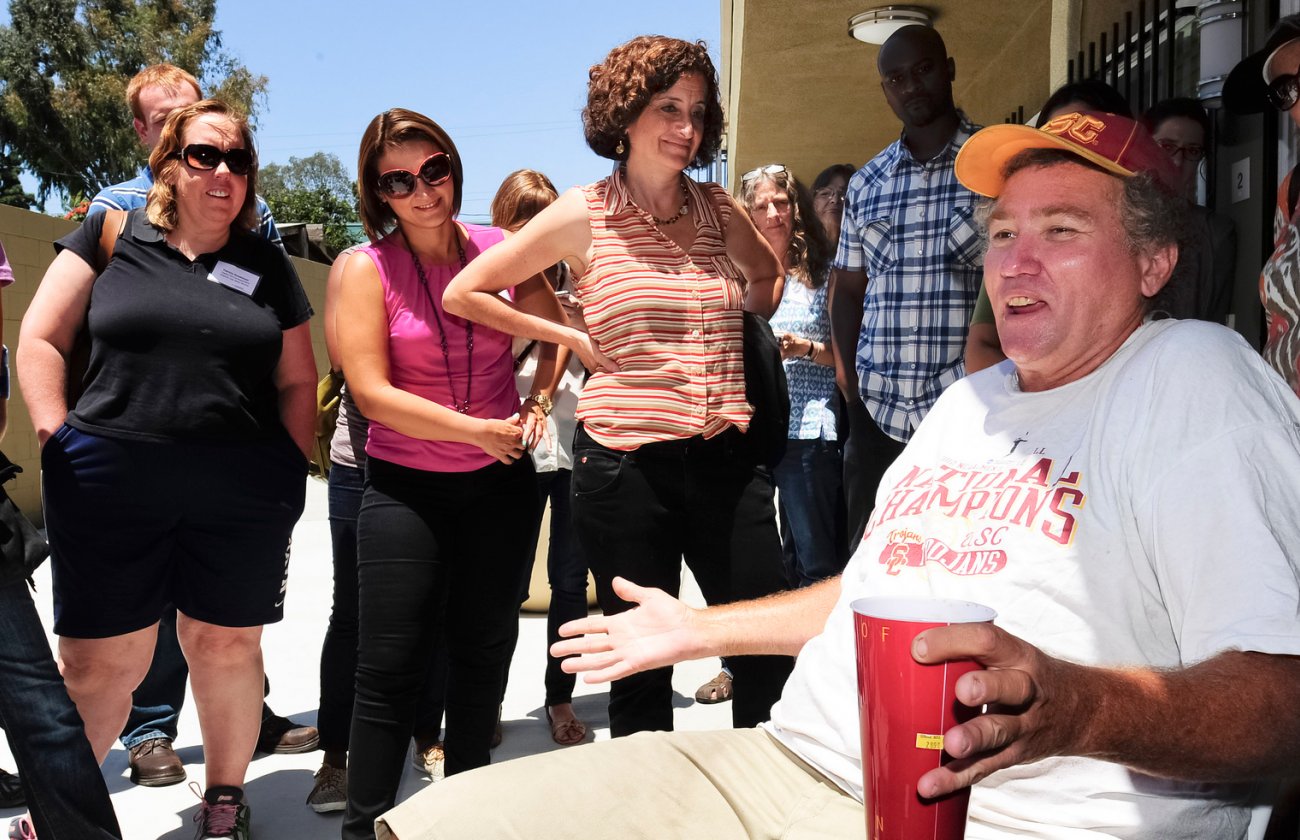Health care coverage figures to be a leading issue during the run-up to the 2012 Presidential election.
There’s no debating, however, USC Annenberg’s ongoing commitment to providing expert coverage of health-related subjects.
That’s in great part thanks to the work of USC Annenberg’s CHCF Center for Health Reporting, which for the last three years has been doing in-depth reporting on health issues in California. Now, thanks to a new, $3.725 million grant from the center’s funder, the California HealthCare Foundation, that work will continue for another three years.
The center is a vanguard partnership between the titular foundation, the school and, at last count, more than 60 print, online, radio and television media partners throughout the Golden State.
“The grant will pay for a continuation of the kind of in-depth reporting about California health policy that we’ve been doing,” said David Westphal, the center’s editor-in-chief.
Added Westphal: “As our journalists have become more and more versed in the issues of the day in respect to health, I think our journalism is getting sharper and more revealing.”
“Over the past three years, the center has played a crucial role in supporting high quality reporting on important health care issues with dozens of media partners across our state,” said Dr. Mark D. Smith, President and CEO of the California HealthCare Foundation. “In these particularly turbulent times for both the media and health care, the need for thoughtful, dispassionate reporting remains high. And the center is well-positioned to fill that role.”
The center was founded in 2009 and is directed by former Journalism School director and Los Angeles Times editor-in-chief Michael Parks. The center employs seven journalists who are overseen by Westphal and managing editor Richard Kipling.
The journalists craft in-depth, mostly enterprise and oftentimes multi-media reports about health-related topics. The resulting “projects” – see the complete list here – aim to spotlight, examine, explain and, whenever possible, have direct impact on policy and solutions.
The new CHCF grant provides a $440,000 increase from the CHCF’s initial three-year funding – support that concluded on Aug. 31. The new contribution will fund the salaries of seven journalists, up from an original six.
The extra staff position is for a broadcast reporter; a position that had already been filled by Sacramento-based Kelley Weiss. The center’s other journalists are senior writers Emily Bazar, John Gonzales and Deborah Schoch; multimedia reporter Lauren M. Whaley; and web producer and research associate Erin Leiker. Bobby Kirkwood is the program’s coordinator.
On Sept. 13, Bazar and Health Journalism Fellow Jocelyn Wiener received a California Journalism Award at a Sacramento ceremony. The honor, “For Excellence in Print-Special Feature/ Enterprise Reporting,” is for the duo’s piece,“Dental program proves painful."
That story, which ran in the Sacramento Bee, was part of a larger, long-term reporting effort by the center. Under the umbrella title, “Cavity Kids,” the center’s reporters looked into a managed care dental program for children in Sacramento County and found that only 30 percent of the kids enrolled in the program had visited a dentist during the 2010-2011 fiscal year. This, the reporters discovered, compared to a statewide average of nearly 50 percent.
“This kind of shocked the political leaders in California,” Westphal says. The “impact” section of the center’s website reports on much of what those state leaders then did in response to the center’s reporting.
In short: New regulations were rolled out from the department that oversees the program and a new state law, signed into law last July by Governor Jerry Brown, sets out to prevent further failures of access to these youth dental programs.
“This is the kind of work that we hope we can do,” Westphal says of Cavity Kids’ reporting and aftermath. “That we can explore in very substantial and deep ways important health programs in California and spotlight ones that aren’t working – as this program clearly wasn’t.”
Other projects from the center’s first three years include a series of twenty-nine stories published in the Chico Enterprise-Record and Orville Mercury Register about the health woes caused by smoke from wood-burning stones; stories about the variation among hospitals statewide in preventing patient infections; and an investigation into how, as the center’s “Impact Projects” webpage explains, “a flawed Medicare policy has contributed to the suffering of American kidney patients for decades.”
In addition to changing the conversation – and sometimes the law – regarding health issues, the center is also part of a cadre of experimental efforts nationwide to rethink the future of journalism.
When the center launched, Westphal says, there were questions about whether a foundation-funded news organization, in this case affiliated with a university, could produce work that would be accepted and published by independent news organizations. Given the decline in private media funding for health beat writers, all involved agreed the center was an experiment well worth taking.
Three years later, with 68 projects and counting complete and three more years of operation assured, Westphal said the center has been a success.
“Not only from the standpoint of the foundation’s investment,’ he said, “but also from the standpoint of a learning laboratory for the university and the journalism school.”




